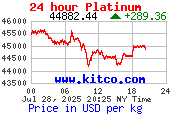This is the time of the year when it’s very easier to be in debt. The government will take away 60% of your income just in taxes. House prices after the recent market jump are still out of the reach of the majority of the people. Bank and credit card companies have varieties of offers for you and they will increase the interest rates just when you are unable to afford paying them back.
Don’t be disheartened! There are ways of living a less costly life without being miserable. After the Christmas holidays that might have created difficult financial circumstances, you can still support yourself with these savvy shopping and saving tips.
Always try to concentrate on core items that you will need in your daily life. You can still afford to have things that really matter. Don’t waste your money or efforts on anything else.
When you are out for shopping, don’t buy the cheapest thing thinking that you are saving money. Quality lasts for a long time and will save money in the long run.
Before you go out for shopping grocery, make a list of the things that you need most. Plan the items that you must have and note it down. Don’t buy anything else that is not in the list. Stop impulse buying like when you have to pay for gas, you don’t have to waste your money by buying a bag of crisps, bar of chocolates, or fizzy drinks.
Try to avoid food that is pre packed. You won’t always get the best quality in the packaged food and sometimes they aren’t the freshest. Bag only what you need.
One very helpful tip! Don’t buy items that are stored in the middles shelves of the supermarkets. These are premium items and the supermarkets actually charge the suppliers for that space. Items that are displayed in the middle rack are often the costliest and most profitable items in the supermarket. Look for the items in the lower or top shelves.
Before you go out, eat your food from home only. You will feel hungry if you go out without having your food at home and this makes you spend 20% extra that could have been saved otherwise.
Ready meals are eight times expensive than raw ingredients. So the best thing for you will be to take the raw ingredients and cook it in your home. You will get a new hobby and skill.
When you are out to buy chicken, take the dressed ones and remove it yourself. Pre-skinned chicken portions are assorted and twice the price of the undressed chicken.
Buy nuts from the cake making section where they are unsalted and tend to be much cheaper.
Chop the vegetables and meat very finely. This way you will waste less.
Don’t try to make shopping as a hobby or your favorite pastime. You might get addicted to one expensive habit and it will be your road down to financial disaster.
Remember, all these tips above will drop down your bills. So you can feel proud of your personal financial growth.
Don’t fall for cheap fashion? Before buying anything, first ask yourself whether you really need it. If your heart says yes, try to move away from that place because most of the time, the heart pushes you to be tempted but the mind stays in perfect control.
Always compare prices before purchasing any item. You will not only review the different qualities of products but also get an idea about the price. Then you can make a better choice.
Be frugal but don’t be miserable. Be cost conscious but don’t fall for cheap items. That’s the best way to think when you are going out for shopping in the year 2008.



 Compare Loans
Compare Loans


